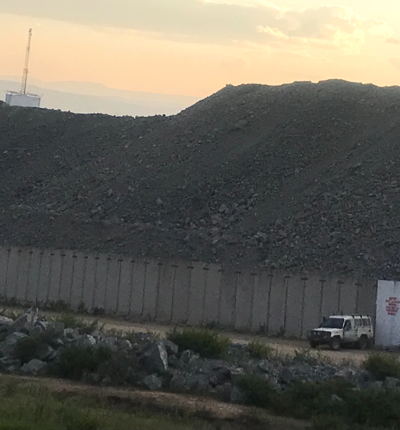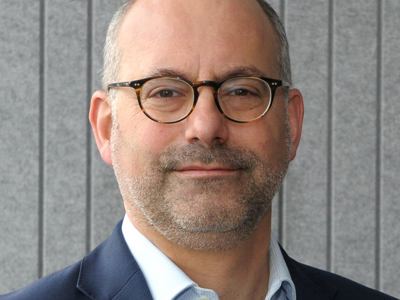
Legal claim launched against London Bullion Market Association following the deaths of two artisanal miners
A claim has been filed in the High Court in London which alleges that the London Bullion Market Association (LBMA) has been wrongly certifying that gold sourced from a Tanzanian mine is free from serious human rights abuses.
Posted on 13 December 2022
The claimants are the families of two artisanal miners who died in 2019, both aged 23, after working at the North Mara Gold Mine, majority-owned by Barrick Gold Corporation, one of the world’s largest gold mining companies. Both individuals’ names have been anonymised to protect their families. The LBMA have until early 2023 to respond to the claims.
ZZZ was killed in July 2019 after entering the mine to prospect for gold. His family allege he was violently assaulted by security guards and/or Tanzanian police officers assigned to provide security at the North Mara Gold Mine. ZZZ suffered a gunshot wound which caused a compound fracture of his tibia/fibula and he died from a loss of blood.
ZZY was killed in December 2019. His family allege he had been working at a tailings (waste material) site before Tanzanian police officers arrived and opened fire with live ammunition and tear gas, ZZY was shot in the back and died from his wound.
The claimants state that despite a widely reported pattern of systematic human rights abuses associated with the mine over many years, the LBMA has continued to be certify gold from the mine under its LBMA Responsible Gold standard.
The case applies standard legal principles of “third party liability” to the realm of certification and social auditing. This is a fast-developing area of law, examining when someone can be legally responsible for harm caused by another. The claimants will argue that a certifying body, like the LBMA, owes a duty of care to victims of human rights abuses following a failure to properly conduct human rights due diligence.
The legal issues raised by this case turn on whether a certification body, like the LBMA, can be held legally responsible for a flawed certification process which causes or contributes to ongoing human rights abuses.
Legal briefing
A detailed legal briefing on the case can be read here
The LBMA is the gatekeeper of the London bullion market. It sets the compulsory standards and policies which underpin around $300 billion of gold traded in London each week. The LBMA retains oversight to ensure those compulsory standards are being met and it has the power to suspend a refiner which fails to apply the Responsible Gold Guidance.
There is a long and troubling history of allegations of human rights abuses committed against local people in and around the mine. In 2011, a fact-finding report by the Legal and Human Rights Centre, Tanzania, reported 19 killings between 2009 and 2010, with five further people killed in one day in May 2011. A Tanzanian Parliamentary commission in 2016 received 335 complaints of police abuse around the mine, including 65 deaths. Also in 2016, MiningWatch Canada and RAID reported 22 killings in a two year period. In 2019, the Guardian reported on allegations of murder and rape, and in 2020, ten Tanzanian citizens, represented by law firm Hugh James, sued the mine’s parent company alleging human rights abuses (the claim is ongoing).
In March 2022, corporate watchdog RAID published a briefing paper on reports of serious human rights violations at the North Mara mine, and in 2021 five human rights groups including Global Witness and Swiss Aid wrote to the CEO of the LBMA questioning the credibility of its responsible sourcing programme saying it failed to halt the trade in tainted gold. And only last month, RAID published a further briefing paper, and 21 Tanzanian nationals filed a case against Barrick Gold in the courts of Canada alleging abuse, torture and killings at the hands of security forces at the Mine. RAID further filed detailed submissions with the LBMA raising concerns about the human rights abuses in 2020 and in 2022 urging the LBMA to act to stop the trade in tainted gold.
However, the LBMA has continued (and continues) to issue a “Responsible Gold Certificate” to the company which refines the gold from the mine, accrediting them as a “Good Delivery” refiner.
By issuing this certificate, the LBMA is verifying that (1) gold refined at the mine constituted “Good Delivery” gold which was responsibly sourced and (2) that the refiner was complying with the LBMA’s Responsible Gold Guidance. This in turn signifies that the LBMA is content that it and the refiner had properly conducted human rights due diligence on the mine and found nothing which breached the LBMA’s mandatory minimum standards.
The claimants allege that at the time of their relatives’ deaths the LBMA was wrongly certifying that gold refined at the mine was untainted by serious and longstanding human rights abuses. Instead, it is argued in the legal claim that the LBMA should have followed its own rules and sanctioned the refiner by suspending or removing it from the LBMA’s Good Delivery list.
The effect of removing LBMA accreditation and its Responsible Gold Certificate would be commercially and reputationally disastrous not only to the refiner, but would also hit the mine, as both would lose access to the London gold market, which is the largest in the world. This, the claimants allege, would have forced the mine and the refiner to finally put a stop to the systematic human rights abuse of artisanal miners. If this had happened, they believe that ZZZ and ZZY would still be alive.
Partner at Leigh Day, Daniel Leader, said:
“For too long social auditors and certification bodies have been used to greenwash serious human rights and environmental abuses linked to corporate conduct. It is high time that their own role is scrutinised and that they are held to account for failings which allow human rights abuses to continue unchecked.”
Senior Associate at Leigh Day, Alex Wessely, said:
“Our clients believe that if a certification body causes adverse human rights impacts, then they must be held to account. This is even more important where companies are outsourcing their own human rights due diligence to specialist organisations, then relying on the audit to escape liability if things go wrong. Our clients are a victim of this accountability gap, and this loophole must be closed if they are to obtain justice.”




